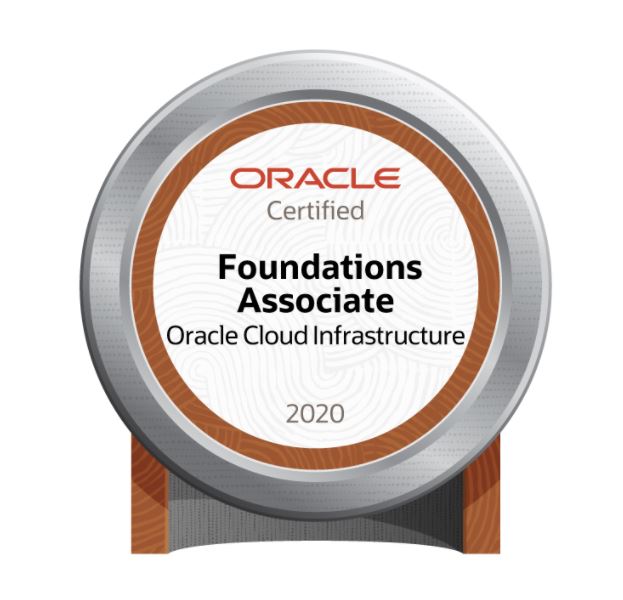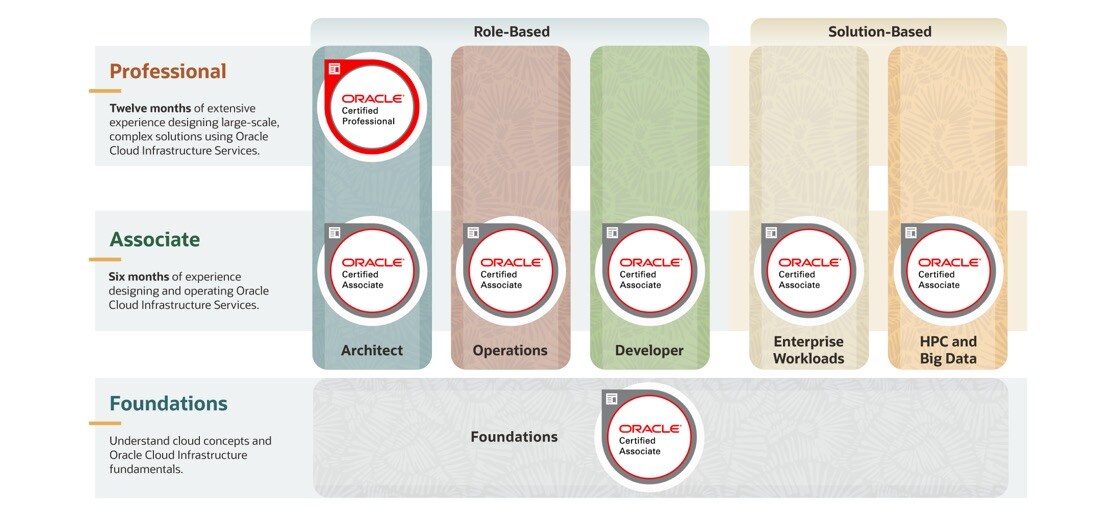# 10 A quick guide to become Oracle Cloud Infrastructure Architect Associate
I have recently cleared Oracle Cloud Infrastructure Architect Associate (1Z0-1072-20) exam. Just wanted to share how I did it. Here are step by step guide that I followed to clear this exam

Oracle Cloud Infrastructure Architect Associate
I have recently cleared Oracle Cloud Infrastructure Architect Associate (1Z0-1072-20) exam. Just wanted to share my experience. Here are step by step guide that I followed to clear this exam

Page Contents
1. Go through the complete course given on page ( Oracle Cloud Infrastructure Architect Associate ) –
Oracle Cloud Infrastructure Architect Associate by Rohit Rahi
2. Do some hands as suggested by Rohit Rahi (focused on Oracle Cloud Infrastructure Architect Associate )
3. Take practice exam from Udemy ( Oracle Cloud Infrastructure Architect Associate ) –
Practice Test for Oracle Cloud Infrastructure Architect Associate on Udemy
4. Do the practice test available in the first link and score more than 80%
You are ready for the exam Oracle and become Oracle Cloud Infrastructure Architect Associate. Good luck!
Here are some notes, I took during my preparation for Oracle Cloud Infrastructure Architect Associate
- A DATA disk group is for storage of oracle database data files
- RECO disk group is primarily used for storing the FAST RECOVERY AREA (FRA ) where oracle database can create and manage various file
- related to backup and recovery (RMAN backup, Archive redo log)
- A bucket can be associated with Single compartment
- 2-node RAC DB systems – Enterprise Edition – Extreme Performance
- Bare metal DB systems allow scale without downtime
- DRG used for ipsec VPN, Fast connect & remote peering
- FastConnect used for both private and public peering. Private peering usages DRG
- DenseIO shapes Designed for large databases, big data workloads, and applications that require high-performance local storage
- You can scale up/down your Autonomous Database to scale both in terms of compute (CPU) and storage only
- RAID 1: An exact copy (or mirror) of a set of data on two or more disks
- RAID 10: Stripes data across multiple mirrored pairs
- RAID 6: Block-level striping with two parity blocks distributed across all member disks
- bronze policy includes monthly incremental backups, e silver policy includes weekly incremental backups, gold policy includes daily incremental backups
- Overwrite destination object used for any copy operation, default no etag limit, override destination
- 2-Node VM DB system and Exadata DB system support Real Application Cluster (RAC)
- BM (Dense IO) provide NVMe drivers and BM standard provide block storage only
- instances to meet compliance and regulatory requirements for isolation that prevent you from using shared infrastructure – Dedicated VM hosts
- In Virtual machine DB systems, you can scale up the storage as needed at any time
- tpurgent:high priority time critical, tp: For typical transaction processing, high: For high priority reporting and batch operations, medium: For typical reporting and batch operations
- low: For low priority reporting and batch operations
- Autonomous Databases have the Dedicated and Shared Exadata infrastructure options
- Automatic backups are scheduled daily
- provide IAM a name that unique accross all user in tenancy
- CUSTOM RESOLVER- let instances resolve the hostnames of hosts in your on-premises network connected to your VCN by IPSec VPN
- Oracle recomend to configure instance to use OCI NTP service used to set date and time of your Compute and Database instances from within (VCN)
- Oracle recommends configuring both tunnels to use BGP dynamic routing.
- The allowable VCN size range is /16 to /30
- Dynamic Routing Gateway ( IPSec VPN & Fast Connect Private peering)
- Configure two or more CPE(Customer Premises Equipmenent) to leaverage IPSec Tunnel
- Dedicated Exadata Infrastructure offer Multitenant DB Arch, allow over-subscription of CPU
- NFS export options are a set of parameters within the export that specify the level of
- access granted to NFS clients when they connect to a mount target
- Load balancer,File storage and database supporrted by OCI CLI whereas block volumes are not
- Compute Images and block volume backup are regional resources. Compartment is not a regional resource
- DWROLE is a predefined database role to connect ADW database
- Default security List and Default Route table components cannot be deleted in OCI
- Customer provided encryption key always stored in OCI Vault service
- OCI OKE Replica Set -maintains stable set of replica pod running at any given time
- By default, object versioning is disabled on a bucket. And when you enable its NOT enabled at namespace level.
- Oracle Data Guard implementation: Both database should be in same compartment. The DB systems must be the same shape type.
- the database versions and editions must be identical.
- If your primary and standby databases are in different regions, then you must peer the virtual cloud networks.
- Primary is 1-Node RAC and secondary can be 1-Node or 2-Node
- You can move object storage bucket, Block volumes and file storage mount target between the compartment
- File systems use Oracle-managed key by default
- Higher Performance elastic performance option is recommended for workloads with the highest I/O requirements, requiring the best possible performance, such as large databases
- You can only create a clone for a volume within the same region, availability domain and tenant.
- You can create a clone for a volume between compartments as long as you have the required access permissions for the operation.

Awadhesh Pratap Dwivedi is an IT industry leader with over 13+ years of experience. He is excellent at providing an easy solution to complex business problems with his tremendous problem-solving skills. Currently, he is working with Oracle as a Principal Solution Engineer.






